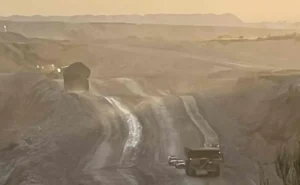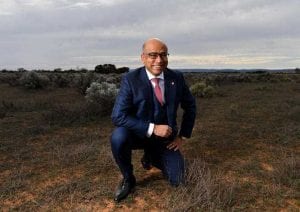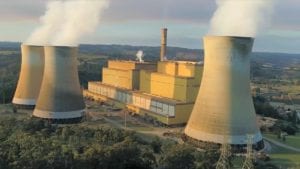European power giants Engie and Uniper have withdrawn from a test project to capture and store carbon dioxide generated by one of several major new coal plants in the Netherlands, dealing yet another blow to the prospects of “clean coal” technology, in which the Australian government and fossil fuel lobbyists still hold much stock.
Reuters reported this week that the two companies – one of which, Engie, the majority owner of Australia’s Loy Yang B brown coal-fired power station in Victoria’s Latrobe Valley, and who recently closed Hazelwood, – had told the Dutch government they no longer intended to participate in the CCS project, the biggest of its kind in Europe.
Holland’s economic affairs Minister Henk Kamp said in a statement he would “examine whether legal steps can be taken to recoup” unspecified subsidies paid to the companies if they had not changed their minds by mid-September.
The minister also said that the companies’ withdrawal from the project “changed nothing” in the government’s resolve to develop large-scale CCS demonstration projects.
But the news deals another serious blow to the prospects of carbon capture and storage – held up by some as a lifeline for coal-fired power as the world shifts to low-carbon energy generation – in the same week that the US market’s flagship “clean coal” and CCS project went up in smoke.
As reported on Thursday, the US energy utility Southern Co finally gave up on its much-vaunted Kemper coal gasification and CCS project, after costs soared from $US1.8 billion to more than $US7.5 billion ($A10 billion), and it realised it wasn’t going to work.
On Wednesday, US time, it announced it would cease operations immediately on the coal component of the project, and just use the asset as a gas generator. Shareholders already saddled with $US3.1 billion of losses face a further $US3.4 billion write down if Southern Co can’t convince regulators to pass those costs on to consumers.
Cost is no doubt a key factor in the decision-making of Engie and Uniper, too, although that has not been specified.
According to European environmental NGO, Bellona, it is no surprise that the Dutch project has also been cancelled, with the two companies showing little desire to commit funds to CCS development – even while pouring billions of investment into developing and acquiring renewable energy generation.
“The reason it’s taken so long is that the coal utility companies kept hoping the Dutch government would do it, so they would avoid any blame and could claim they tried.
“Surely to their disappointment, the Dutch government has however made it clear it is serious about industrial decarbonisation and CCS, so they had their hand forced. Those companies actively worked to block any ambitious EU policies that could provide the necessary framework for CCS to become operational in Europe.’’ says Jonas Helseth, Director of Bellona Europa.











